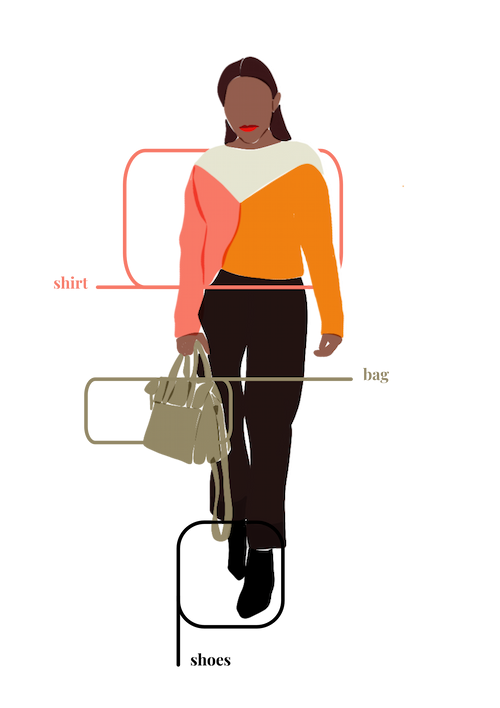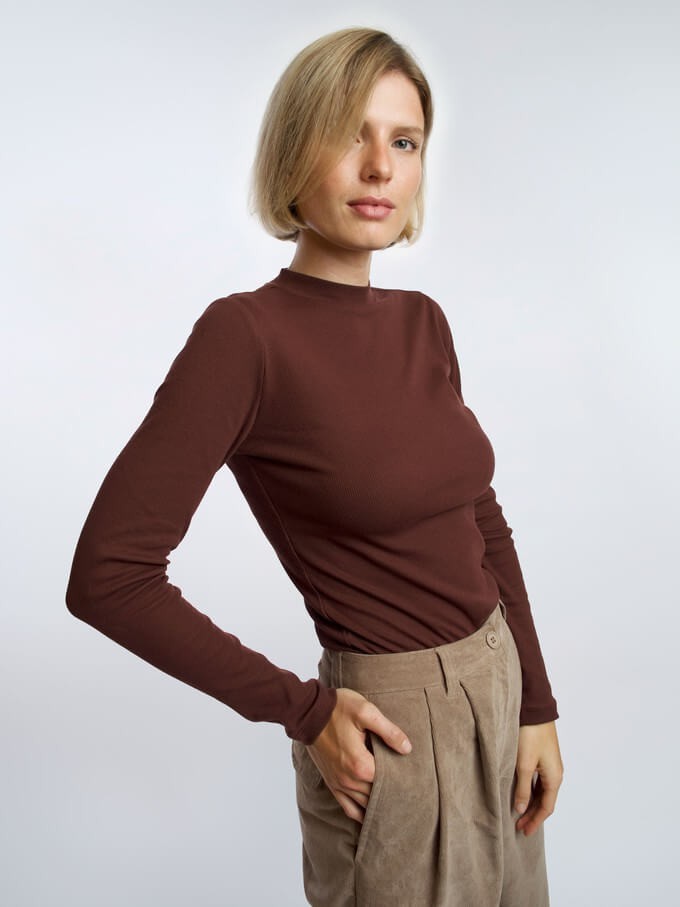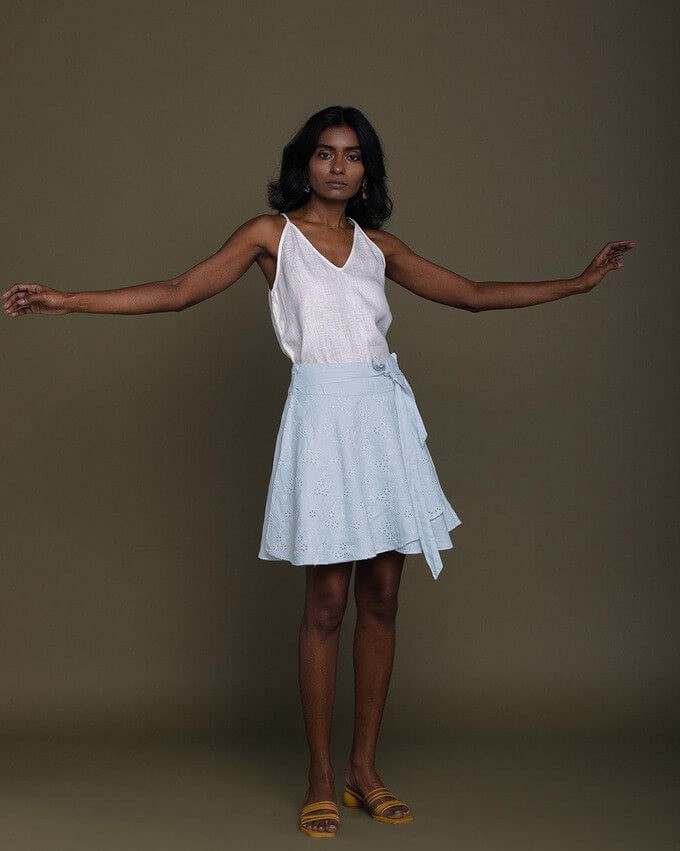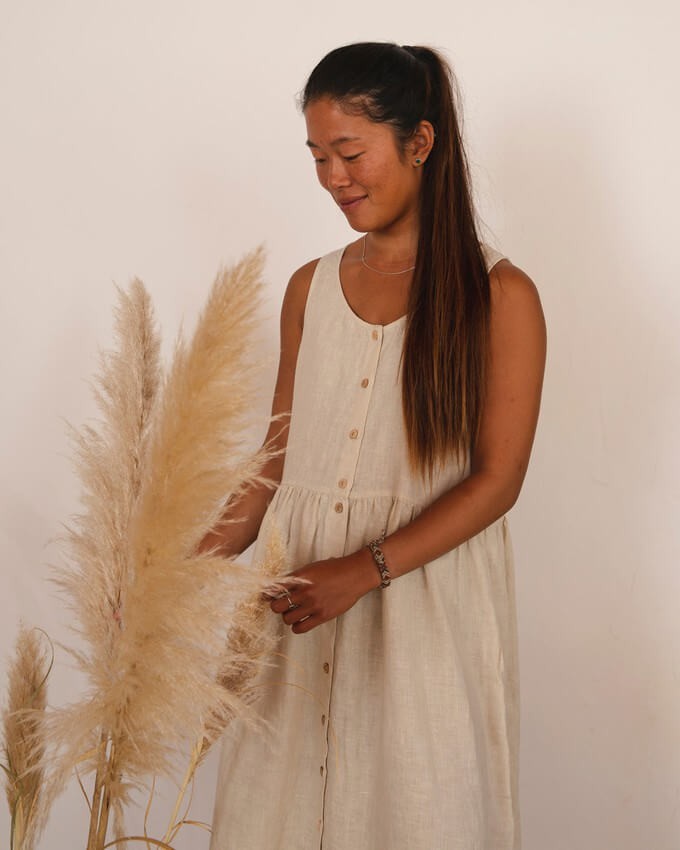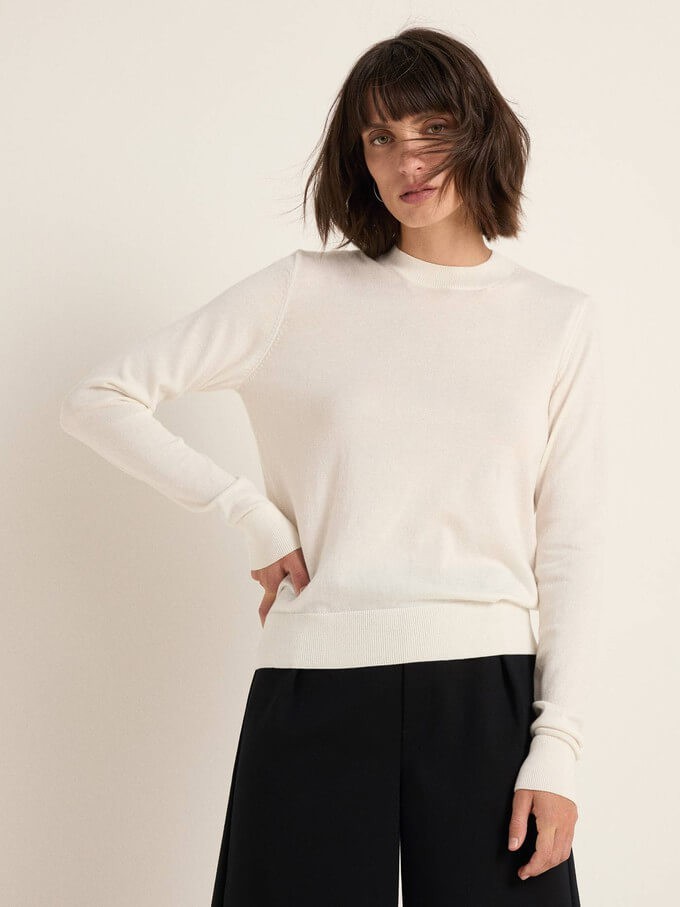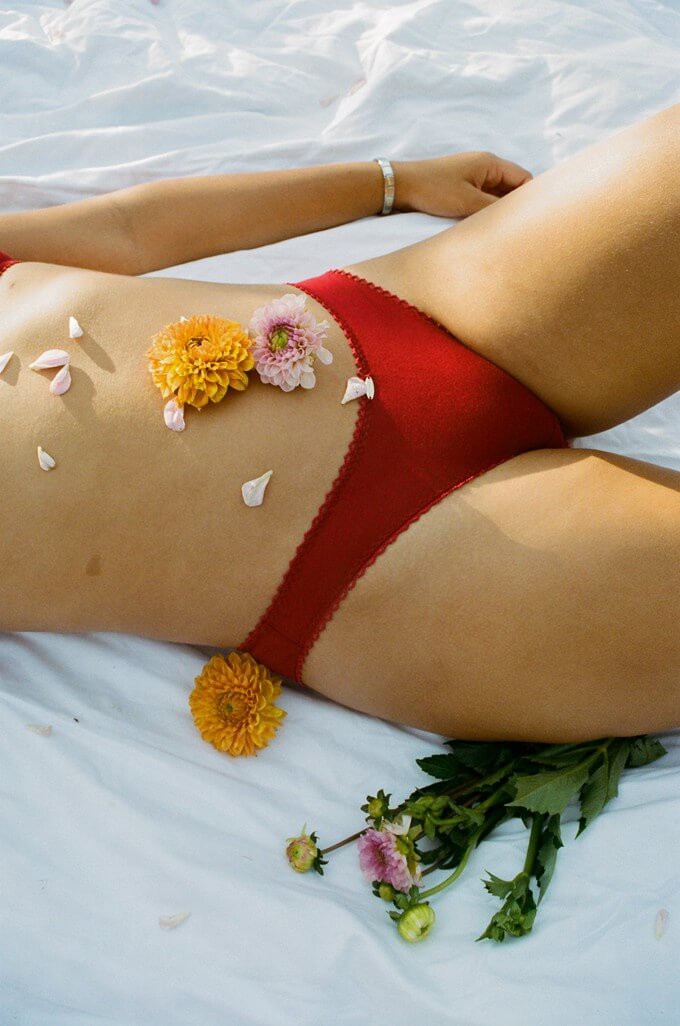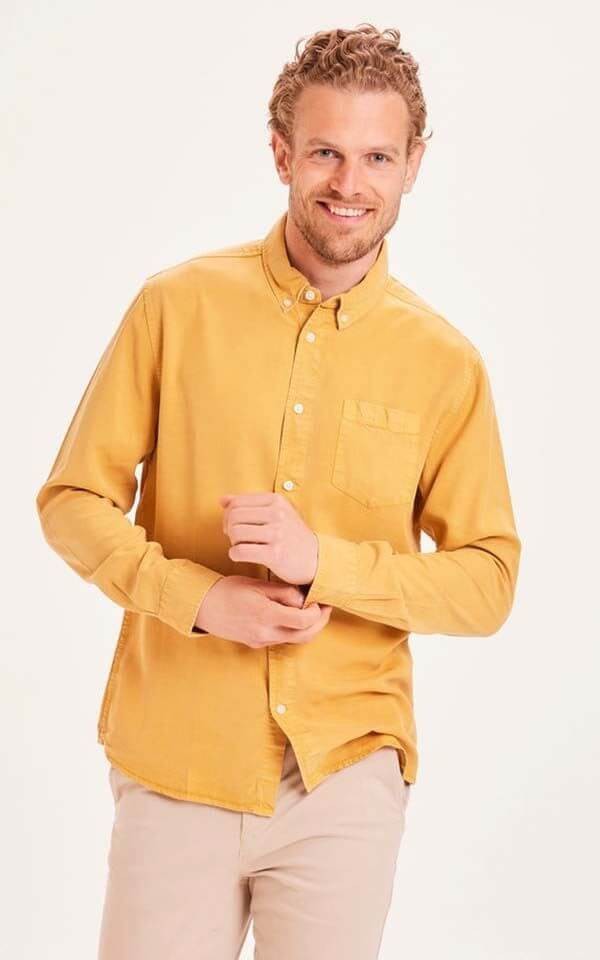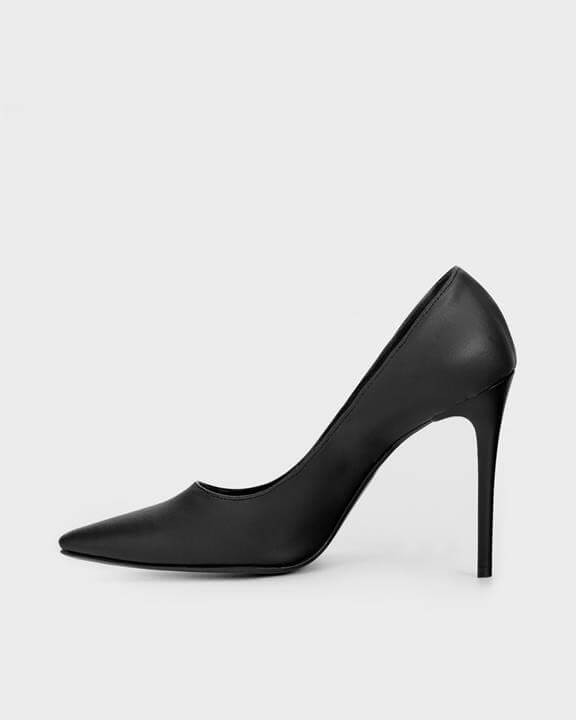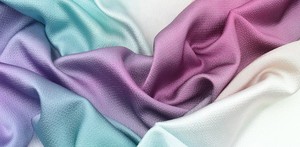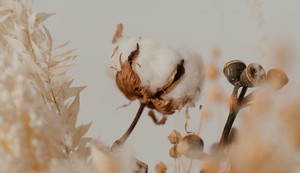- Clothes
- Bags
- Accessories
-
Inspiration
- Shoes
What Are the Most Sustainable Fabrics? Oh, Sew Eco-Friendly!
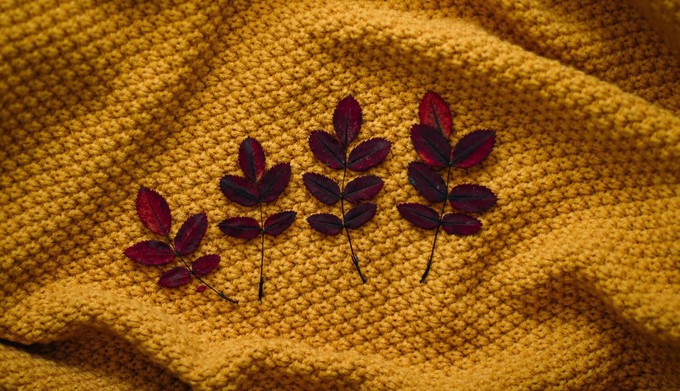
So, you’re looking to make your wardrobe more eco-friendly? Good for you!
Choosing the most sustainable fabrics is an excellent starting point.
Just a quick clarification before we lose our thread:
What makes a clothing fabric ‘sustainable’?
Overall, a clothing fabric is considered sustainable if its environmental footprint is minimal or lower than other options. This must be true for:
- Material sourcing (e.g. for natural ones) or production (like polyester and other synthetic options)
- Added chemicals and processing (like dyes)
- End-of-life situation (what happens to this fabric once a product is discarded?)
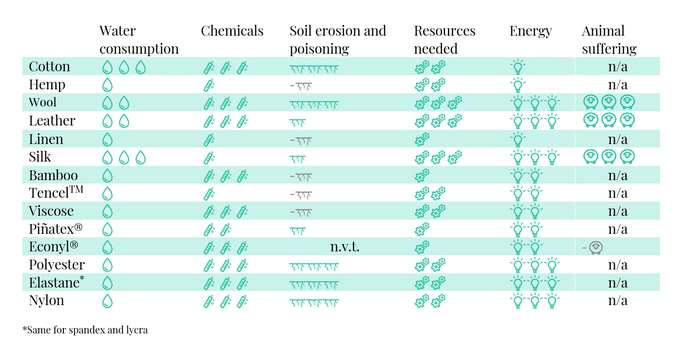
7 most sustainable fabrics for clothing
Unfortunately, things are rarely black and white in the ethical fashion world.
For example, a brand might brag about using ‘organic cotton’ but rely on a dodgy supply chain with higher carbon emissions.
That’s why we believe all brands should be transparent!
But even though it’s important to consider them on a case by case basis, you can always refer to this simple sustainable fabrics list.
1. Recycled materials
Using old fabrics to make new clothes is better for the planet.
- Reducing waste – It prolongs the lifespan of existing textiles, stopping them from ending up in landfills
- Smaller footprint – Sure, recycling fabrics still requires energy and resources, but less than sourcing new materials from scratch
Some popular options are:
- Recycled cotton – Growing cotton is terrible for the environment. It releases 220 million tonnes of carbon every year and requires huge quantities of land, water, and pesticides. So, more and more brands are using old cotton garments and jeans to obtain new fibre
- Recycled wool – Wool is a tricky material. Yes, it’s biodegradable, durable, and doesn’t require frequent washing. But it’s not vegan, brings up ethical concerns, and comes with the cons of animal farming (like deforestation and gas emissions). Recycled wool, on the other hand, avoids these problems
- Recycled polyester – This isn’t one of the most sustainable clothing fabrics per se: it still needs up to 200 years to decompose and sheds microplastics whenever washed. It’s much better than choosing virgin polyester, though: the latter comes from fossil fuels and is responsible for 40% of fashion's carbon emissions!
2. Hemp
Marijuana’s “sober cousin” keeps you warm during winter and fresh in summer—and it’s one of the most sustainable fabrics all year round.
- Fast and hardy – Hemp is one of the fastest growing plants and doesn’t need herbicides or pesticides
- Kind to the soil – It returns a large portion of nutrients, making it even more fertile
- Durable – Its fibres can bend and mend 6 times more than steel, and hemp clothing is 3 times more durable than cotton (= less waste)
- Not greedy – Hemp can be grown with less land and a third of the water used for cotton
- Biodegradable – hemp fabric can take as little as two weeks to decompose naturally
3. Linen
Linen is a durable and sustainable fabric that you can wear through different seasons.
- Natural and hardy – Linen comes from the fibres of the flax plant: it thrives in poor-quality conditions, requires less water than cotton, and doesn’t need fertilisers and pesticides (although, sadly, some companies still add them)
- Durable – Linen is moth-resistant and gets stronger after each wash. So, you can rewear linen clothes for years (= less waste)
- Biodegradable and recyclable – As long as it’s untreated! Hint: avoid extremely white linen, as it was probably bleached
4. Certified organic cotton
Organic cotton is kinder to the planet than traditional cotton and can be one of the most sustainable fabrics.
- Organic – It’s not genetically modified
- Less water – It relies more heavily on rain and groundwater
- No toxic substances – Its production doesn’t involve pesticides or toxic substances and dyes
- Kinder to the soil – It actually promotes soil regeneration
Why did we emphasise ‘certified’? Because organic cotton is a vague term that leaves room for greenwashing (for example, it can use more water and land to make up for the lack of fertilisers!).
So, consider looking for third-party certifications like GOTS or BCI.
5. Bamboo
Breathable and versatile, bamboo is incredibly green (pun intended).
- Good carbon footprint – Bamboo absorbs more carbon dioxide and produces more oxygen than trees
- Fast and renewable – It can grow more than 1m per day!
- Sturdy and resistant plant – It doesn’t require pesticides and fertilisers
- Less water – Bamboo can grow in areas with only 20 inches of rainfalls a year
- Strong and durable – Bamboo is stretchable and robust
- Biodegradable – If it hasn’t been treated chemically, it biodegrades naturally in as little as a year
Unfortunately, bamboo is often grown in monocultures (which cause biodiversity loss), and the greediest companies still use fertilisers.
So, even though it can be one of the most sustainable fabrics in fashion, it all depends on how it’s grown.
6. Modal fabrics
Viscose (rayon or artificial silk), modal, lyocell and Tencel: these semi-synthetic and fairly sustainable fabrics are different branches of the same tree.
And by ‘tree’ we mean… dissolved wood pulp!
- Renewable – Unlike synthetic options, these fabrics come from natural and renewable resources (trees)
- Not too greedy – They require less land and water than cotton
- Biodegradable – They biodegrade naturally (although they lose this property if certain chemicals are used)
- Closed-loop (for lyocell and Tencel) – Their water and solvents are reused
Modal options are good alternatives to silk, cotton, and synthetic activewear.
They can be some of the most sustainable fabrics but have some drawbacks, too. For example, rayon has a chemically heavy production. Overall, we’d say that lyocell is the most eco-friendly out of them.
7. Fruit- and plant-based vegan leather
When it comes to leather and its vegan alternatives, it gets even trickier.
- Leather is more durable (= less waste) but relies on livestock, the world’s largest user of agricultural resources and one of the main deforestation causes. Plus, it comes with ethical concerns because it supports the meat industry (and no, leather isn’t always a byproduct!)
- Vegan leather doesn’t involve animals and has lower carbon emissions, but it’s less durable and mostly made out of plastic
Well, plant-based options aren’t perfect either (yet), but we consider them the most eco-friendly fabrics when it comes to leather alternatives.
- Piñatex or pineapple leather – Byproduct of pineapple farms
- Desserto or cactus leather – No pesticides or irrigation systems needed
- Grape or wine leather – Byproduct of the wine industry
It’s just a shame that, even though they use natural resources, they still involve chemicals and coatings that are not biodegradable.
Finding clothes made with the best sustainable fabrics

On Project Cece, we brought hundreds of fair trade brands in one place and added filters to simplify your choice.
One of them? Materials, of course!
Plus, scientists and brands keep coming up with more innovative fabrics, from mushroom leather to coconut wool. They just aren’t as popular and common, but we’re always on the lookout for new partners that use them.
Basically, choosing the most sustainable fabrics is now easier than ever!
Found this helpful? Start receiving our tips and inspiration to make even more ethical fashion choices.
Share our story
Related articles
WORST Fabrics for the Environment (& Greener Alternatives)
There are other factors to consider, but these are definitely some of the worst fabrics for the environment. Find out some kinder options, too.
What New Sustainable Fabrics & Materials Are Designers Using?
Recycled plastic, coconuts, and even… milk! Here are some of the most innovative new sustainable fabrics to reduce the environmental impact of clothes.
Is Cotton Bad for the Environment? The No-Fluff Truth!
Spoiler alert: yes, unfortunately it is. Find out exactly how cotton is bad for the environment (and discover its more ethical alternatives).
Project Cece is a platform that collects ethical fashion from vetted brands and shops in one place. Browse ethical fashion for women and men and find items that fit your style, budget and values!
